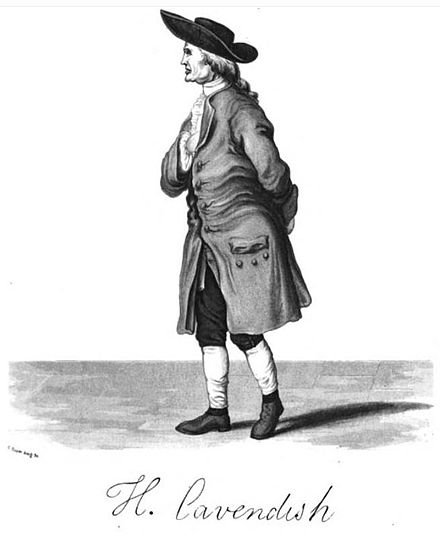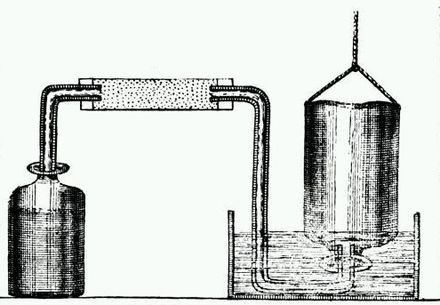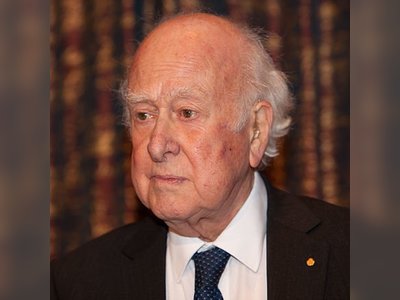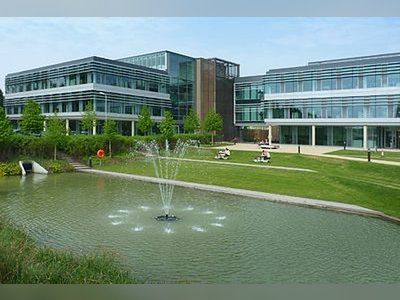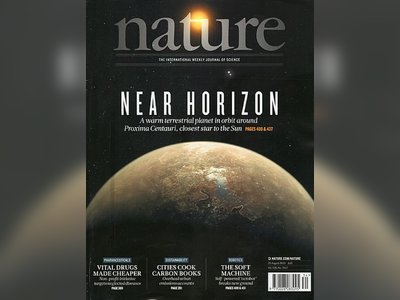British Heritage
Remember, Cherish, Learn.
beta
Henry Cavendish - Hydrogen and Mass of the Earth c. 1976
Contribution of Henry Cavendish to British Heritage.
Henry Cavendish, an English natural philosopher and scientist, made significant contributions to British heritage through his groundbreaking work in experimental and theoretical chemistry and physics. His discoveries and achievements in the scientific field have left a lasting legacy, shaping the course of scientific inquiry and advancing knowledge during his time and beyond.
Henry Cavendish was born on 10 October 1731 in Nice, where his family resided at the time. He hailed from a distinguished lineage with connections to many aristocratic families in Great Britain. After attending Newcome's School, a private school near London, he went on to study at the University of Cambridge but left without a degree. From an early age, he showed a keen interest in scientific instruments and conducted experiments in his own laboratory.
Cavendish's most notable achievement was his discovery of hydrogen, which he termed "inflammable air". In 1766, he published a paper titled "On Factitious Airs," in which he described the density of inflammable air, which formed water upon combustion. Antoine Lavoisier later reproduced Cavendish's experiment and gave the element its name, recognizing Cavendish's pioneering role in the discovery of hydrogen as an element.
Cavendish delved into the study of air composition and made significant advancements in understanding its properties. In 1785, he conducted experiments combining hydrogen and ordinary air in known ratios and observed the results of their combustion. His meticulous observations led him to conclude that "common air" consists of one part of dephlogisticated air (oxygen) mixed with four parts of phlogisticated air (nitrogen).
One of Cavendish's most famous experiments, known as the "Cavendish experiment," involved determining the density of the Earth. Using a precise torsion balance, he measured the gravitational attraction between lead spheres and then calculated the Earth's average density to be 5.48 times that of water. This experiment was a landmark achievement in physics and contributed to the accurate determination of the gravitational constant (G) and Earth's mass.
Cavendish's work extended into the realm of electricity, where he conducted various experiments. He formulated concepts related to electric potential, capacitance, dielectric constants, and the relationship between electric potential and current, now known as Ohm's Law. However, much of his electrical research remained unpublished during his lifetime.
Henry Cavendish's contributions to science were enormous, but he was also known for his intensely private and introverted nature. Despite this, he gained great respect and admiration from his contemporaries for the precision and accuracy of his experiments. Many of his discoveries were ahead of his time and found recognition long after his death, thanks to scholars like James Clerk Maxwell, who unearthed and published Cavendish's work.
To honor his exceptional achievements and to perpetuate his scientific legacy, the renowned physics laboratory at the University of Cambridge was named the Cavendish Laboratory. The laboratory continues to be a hub of scientific discovery and innovation, carrying forward the spirit of Henry Cavendish's pioneering research.
In conclusion, Henry Cavendish's contributions to British heritage are immeasurable. His discoveries in chemistry, including the identification of hydrogen and investigations into air composition, have shaped the foundation of modern chemistry. Additionally, his precision in measuring the Earth's density and gravitational constant significantly advanced the understanding of physics. Cavendish's work and legacy continue to inspire and influence generations of scientists, making him an enduring figure in the annals of British scientific history.
Early Life and Scientific Interests
Henry Cavendish was born on 10 October 1731 in Nice, where his family resided at the time. He hailed from a distinguished lineage with connections to many aristocratic families in Great Britain. After attending Newcome's School, a private school near London, he went on to study at the University of Cambridge but left without a degree. From an early age, he showed a keen interest in scientific instruments and conducted experiments in his own laboratory.
Discovery of Hydrogen and Pioneering Work in Chemistry
Cavendish's most notable achievement was his discovery of hydrogen, which he termed "inflammable air". In 1766, he published a paper titled "On Factitious Airs," in which he described the density of inflammable air, which formed water upon combustion. Antoine Lavoisier later reproduced Cavendish's experiment and gave the element its name, recognizing Cavendish's pioneering role in the discovery of hydrogen as an element.
Investigations into the Composition of Air and Earth's Density
Cavendish delved into the study of air composition and made significant advancements in understanding its properties. In 1785, he conducted experiments combining hydrogen and ordinary air in known ratios and observed the results of their combustion. His meticulous observations led him to conclude that "common air" consists of one part of dephlogisticated air (oxygen) mixed with four parts of phlogisticated air (nitrogen).
One of Cavendish's most famous experiments, known as the "Cavendish experiment," involved determining the density of the Earth. Using a precise torsion balance, he measured the gravitational attraction between lead spheres and then calculated the Earth's average density to be 5.48 times that of water. This experiment was a landmark achievement in physics and contributed to the accurate determination of the gravitational constant (G) and Earth's mass.
Electricity and Legacy
Cavendish's work extended into the realm of electricity, where he conducted various experiments. He formulated concepts related to electric potential, capacitance, dielectric constants, and the relationship between electric potential and current, now known as Ohm's Law. However, much of his electrical research remained unpublished during his lifetime.
Legacy and Influence on Modern Science
Henry Cavendish's contributions to science were enormous, but he was also known for his intensely private and introverted nature. Despite this, he gained great respect and admiration from his contemporaries for the precision and accuracy of his experiments. Many of his discoveries were ahead of his time and found recognition long after his death, thanks to scholars like James Clerk Maxwell, who unearthed and published Cavendish's work.
To honor his exceptional achievements and to perpetuate his scientific legacy, the renowned physics laboratory at the University of Cambridge was named the Cavendish Laboratory. The laboratory continues to be a hub of scientific discovery and innovation, carrying forward the spirit of Henry Cavendish's pioneering research.
In conclusion, Henry Cavendish's contributions to British heritage are immeasurable. His discoveries in chemistry, including the identification of hydrogen and investigations into air composition, have shaped the foundation of modern chemistry. Additionally, his precision in measuring the Earth's density and gravitational constant significantly advanced the understanding of physics. Cavendish's work and legacy continue to inspire and influence generations of scientists, making him an enduring figure in the annals of British scientific history.
- Henry Cavendishen.wikipedia.org
